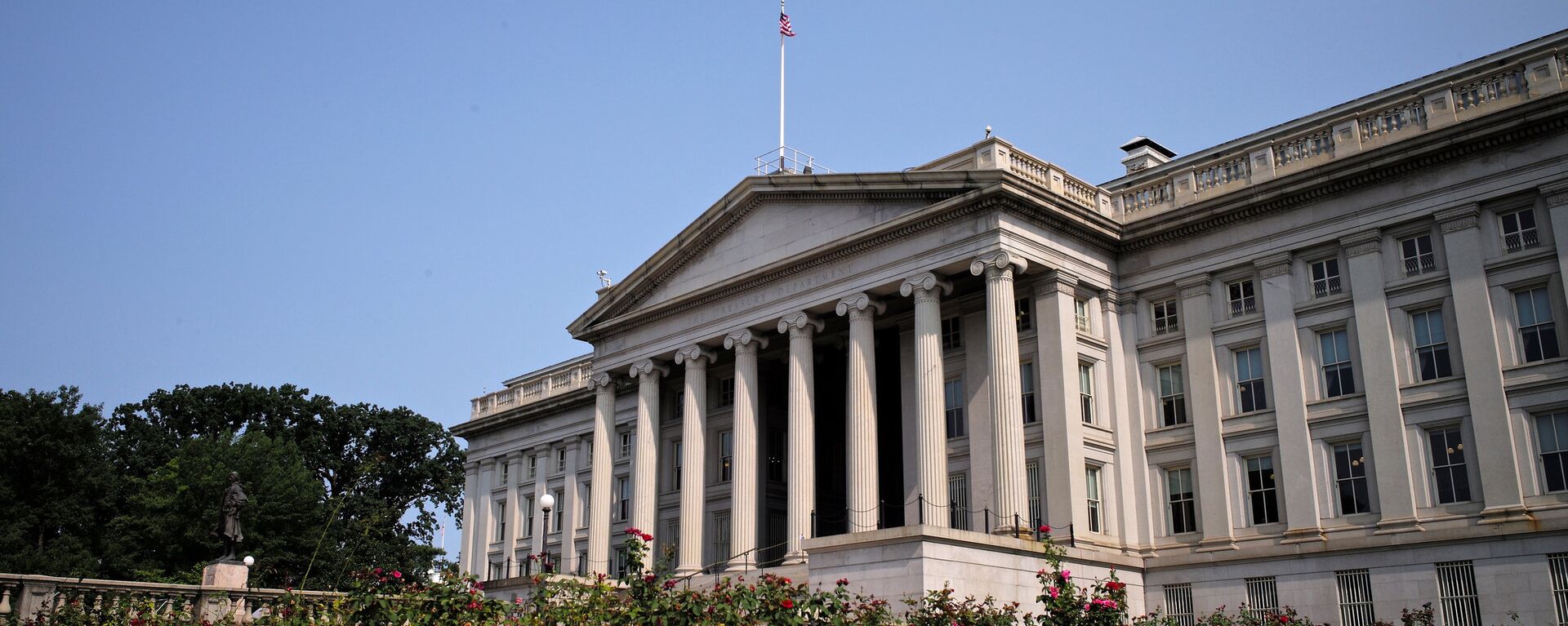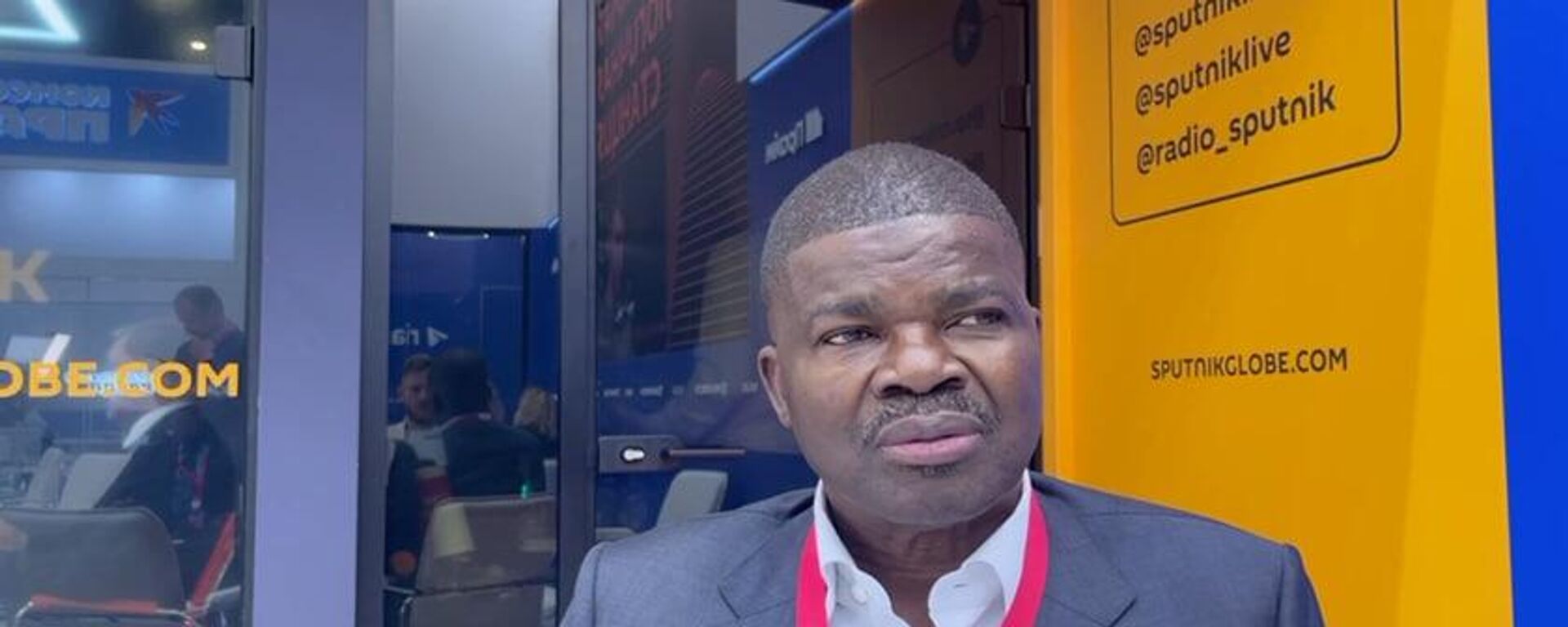https://en.sputniknews.africa/20240607/what-can-african-nations-learn-from-russias-resilience-to-comprehensive-western-sanctions-1066931979.html
What Can African Nations Learn From Russia's Resilience to Comprehensive Western Sanctions?
What Can African Nations Learn From Russia's Resilience to Comprehensive Western Sanctions?
Sputnik Africa
Russia has faced thousands of Western sanctions since the escalation of the conflict in Ukraine in February 2022, with almost all sectors of the Russian... 07.06.2024, Sputnik Africa
2024-06-07T18:07+0200
2024-06-07T18:07+0200
2024-06-07T18:33+0200
spief 2024
russia-africa cooperation
russia
south africa
zimbabwe
brics
g7
g20
sanctions
us sanctions
https://cdn1.img.sputniknews.africa/img/07e8/06/07/1066932270_0:38:3072:1766_1920x0_80_0_0_0a1eff2d5fad4e1d0aa0843e9d838cf2.jpg
There is much that Africa can learn from Russia's resilience in the face of a record number of sanctions imposed by the collective West over the ongoing conflict in Ukraine, according to Elias Monage, president of the Black Business Council, an organization representing business associations and chambers in South Africa.Speaking to Sputnik Africa on the sidelines of the St. Petersburg International Economic Forum (SPIEF 2024), Monage stressed the importance of learning from Russia's embrace of import substitution and exploring avenues for cooperation in key sectors such as defense and agriculture.The businessman pointed to South Africa's own experience with sanctions, which led to the development of strong defense industries.Monage also emphasized the potential for South Africa to collaborate with Russia in supporting the agricultural development of other African countries, particularly Zimbabwe, which is also facing Western sanctions.Monage further highlighted the emerging opportunities for direct trade between Russia and African countries, bypassing Western intermediaries. He noted that "before the sanctions, most of the imports from Africa to Russia were via the West."He also expressed confidence that African countries would not be significantly affected by the sanctions because of their strong historical ties with Russia and their increasing alignment with the BRICS bloc, which now includes two new African members, Ethiopia and Egypt, in addition to South Africa.
https://en.sputniknews.africa/20240502/us-issues-hundreds-of-sanctions-targeting-russian-defense-sector-third-country-support-1066330291.html
https://en.sputniknews.africa/20240607/sanctions-are-opportunity-for-russia-brics-to-have-their-own-currency-sa-firm-group-chairman-says-1066925238.html
russia
south africa
zimbabwe
southern africa
Sputnik Africa
feedback@sputniknews.com
+74956456601
MIA „Rossiya Segodnya“
2024
Sputnik Africa
feedback@sputniknews.com
+74956456601
MIA „Rossiya Segodnya“
News
en_EN
Sputnik Africa
feedback@sputniknews.com
+74956456601
MIA „Rossiya Segodnya“
Sputnik Africa
feedback@sputniknews.com
+74956456601
MIA „Rossiya Segodnya“
russia-africa cooperation, russia, south africa, zimbabwe, brics, g7, g20, sanctions, us sanctions, anti-russian sanctions, southern africa
russia-africa cooperation, russia, south africa, zimbabwe, brics, g7, g20, sanctions, us sanctions, anti-russian sanctions, southern africa
What Can African Nations Learn From Russia's Resilience to Comprehensive Western Sanctions?
18:07 07.06.2024 (Updated: 18:33 07.06.2024) Russia has faced thousands of Western sanctions since the escalation of the conflict in Ukraine in February 2022, with almost all sectors of the Russian economy targeted by the restrictive measures. However, the country has managed to withstand all Western pressure by developing its own resources to replace imports and has grown even faster.
There is much that Africa can learn from
Russia's resilience in the face of a record number of sanctions imposed by the collective West over the ongoing conflict in Ukraine, according to Elias Monage, president of the Black Business Council, an organization representing business associations and chambers in South Africa.
Speaking to Sputnik Africa on the sidelines of the St. Petersburg International Economic Forum (SPIEF 2024), Monage stressed the importance of learning from Russia's embrace of import substitution and exploring avenues for cooperation in key sectors such as defense and agriculture.
"You'd recall that even in South Africa, there are a lot of things we can learn from both sides because sanctions raise the capacity of a country not to rely on anyone but then to use their own resources in terms of developing various industries and sectors," he said.
The businessman pointed to South Africa's own experience with sanctions, which led to the development of strong defense industries.
Monage also emphasized the potential for South Africa to collaborate with Russia in supporting the agricultural development of other African countries, particularly Zimbabwe, which is also facing
Western sanctions.
"Look at Zimbabwe … they are big in agriculture, and they are under sanctions by the West," he said. "And again, you need them to assist... How can we then develop the capacity of Zimbabwe together with Russia and various countries on the continent in terms of their capacity on the agricultural side, and then talk about the import and export of various things."
Monage further highlighted the emerging opportunities for direct trade between Russia and African countries, bypassing Western intermediaries. He noted that "before the sanctions, most of the imports from Africa to Russia were via the West."
"Now I think Russia will then do it directly as opposed to reliance on the West. These are some of the opportunities for both the continent and Russia in terms of doing business," he explained.
He also expressed confidence that African countries would not be
significantly affected by the sanctions because of their strong historical ties with Russia and their increasing alignment with the BRICS bloc, which now includes two new African members, Ethiopia and Egypt, in addition to South Africa.
"The G7 or G20 will be overtaken by the BRICS configuration in terms of their population because you then look at the 1.3 billion relative to the 42% of the world’s population that resides in the BRICS countries," he argued.



